With snap federal elections scheduled for February 23, InfoMigrants examines the manifestos of Germany's top seven political parties in regard to migration. Today we look at what the Free Liberals (FDP), have to say about migration.
For the upcoming elections, InfoMigrants takes a closer look at where Germany's top seven political parties stand on migration and asylum policy. So far, we have published a summary of the Conservatives (CDU/CSU) policy proposals, the Social Democrats (SPD), the Greens and the Alternative for Germany (AfD); we will publish overviews on the BSW and Left party in the next few weeks.
In general, the Free Liberals are seen as a pro-business party, attracting votes from entrepreneurs, company bosses and other business leaders. Positioned at the intersection of liberal and libertarian policies, they have an overall laissez-fair approach to most issues, which in many ways extends to their attitudes on migration.
The party considers itself centrist, but some of the party's positions could be classified as slightly right-of-center.
They are typically seen as a preferred coalition partner by the Christian Democrats (CDU/CSU), who are likely to win the mandate to form the next government.
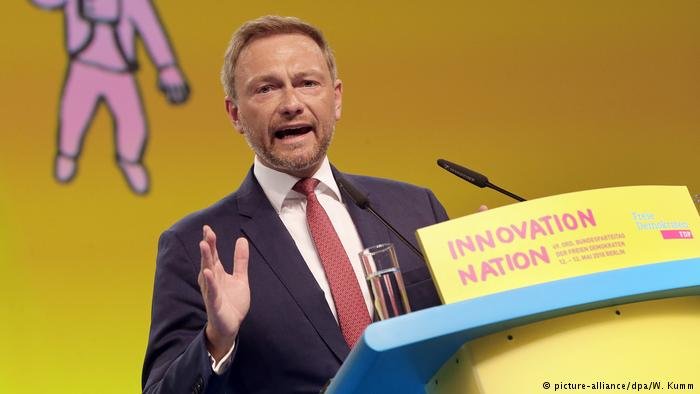
However, the party is currently regarded as somewhat unpopular, as it is the reason why the current three-way government coalition with the Social Democrats and the Greens collapsed, necessitating moving the elections forward by seven months. With this in mind, the Free Liberals might fall under Germany's 5 percent threshold of votes to enter the Bundestag, the country's lower house of parliament.
Even if they do manage to crack the 5 percent mark, the Free Liberals are unlikely to join a government with the Christian Democrats alone, as going by current polling, the two parties together would still be considerably short of a parliamentary majority.
Read AlsoGermany elections: Where do the parties stand on immigration issues?
To live and let live?
Slashing taxes and red tape and thus keeping government lean has always been a central part of the Free Liberals' top agenda — a policy approach that also translates to certain aspects of migration issues, but not others.
The Free Liberals say they simply do not want to have any unnecessary interference. Broadly speaking, the party tends to take a "live and let live" approach to many issues, unless it identifies important reasons for the government to act.
For the 2025 federal election, the party appears to have pivoted its manifesto more in the direction of what it wants to see accomplished and get done, rather than what it considers should be left alone. The motto for this election, "Alles lässt sich ändern," translates as "everything is subject to change."
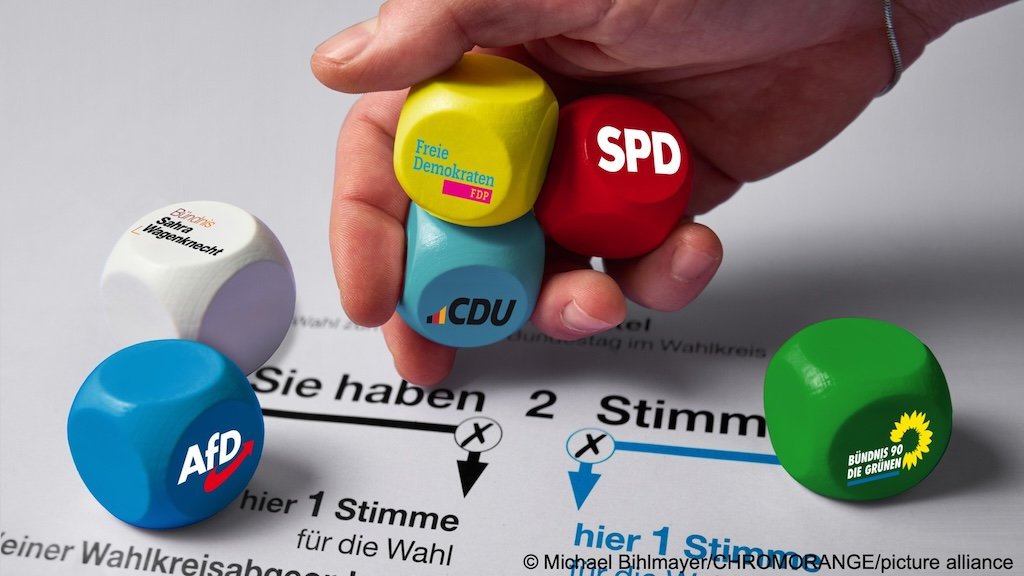
"We can all feel it: nothing can stay the way it was."
These are the first words of the opening statement of the 51-page document. Halfway into that first paragraph of the document, the Free Liberals mention that this desired sense of change in the country includes "Germany finally getting its irregular immigration under sufficient control." This early focus on migration as a campaign issue hints at a move to the right of the otherwise centrist party — a trend observed among nearly all parties in recent years.
Education and work
The first key issue that the Free Liberals plunge into in their manifesto however is education. They highlight a series of ambitious changes and reforms required to provide "the best education in the world for confident citizens."
Immigrants coming to Germany are also mentioned on multiple occasions in this section, starting from offering additional help for immigrant children to become ready to receive schooling in the German language, all the way to furthering the recognition of university degrees from abroad for skilled workers coming to the country.
The party also wants to make Germany more attractive for highly skilled people coming to the country to work in research, with a view to positioning Germany as a leading global center for innovation.
The Free Liberals mention the role of foreigners several times in these paragraphs on education and propose multiple tangible improvements, but when it comes to the rights, privileges and obligations of people who do come to Germany to work, they offer no real policies to attract more migrant workers.
"Our country is in urgent need of immigration into the labor market," the party states but in its chapter on employment, shifts its focus rather to core FDP issues such as lowering taxes, privatizing aspects of the public pension fund, creating incentives for entrepreneurs, reforming financial markets and, once again, slashing rules and regulations.
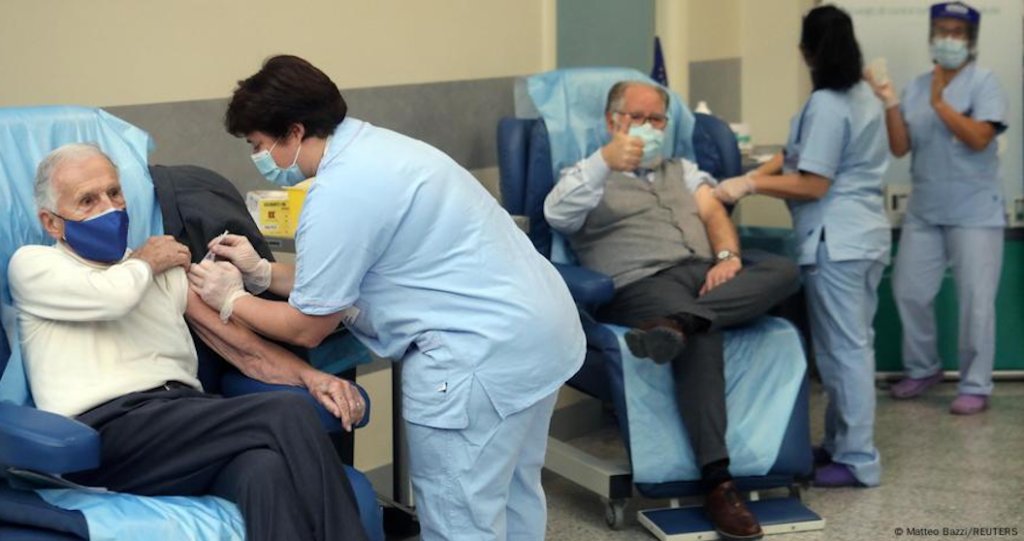
In contrast to the Free Liberals, most other major parties in their manifestos elaborate more on this particular issue of making Germany attractive for skilled labor immigrants, with most parties agreeing that this is not only an immigration issue but also part of a vision for Germany's future as a functioning social democracy in dire need of more taxpayers.
Much of the Free Liberals' vision on addressing labor shortages through migration instead is dedicated to streamlining related laws, creating more fiscal incentives for such immigration and cutting bureaucratic measures.
They also propose that all asylum seekers should have access to the labor market, which at present depends on the protection status given in each case.
Read AlsoA quarter of workers in Europe are migrants: UN agency
New solutions sought to limit arrival numbers
The Free Liberals — widely known as supporters of innovative and even disruptive ways of running government — also take a somewhat different approach when it comes to exploring new ways of checking the efficiency of Germany's overall asylum system.
To this end, they suggest that "asylum procedures should also take place in third countries if asylum seekers are safe there and procedures based on the rule of law are guaranteed."
"As Free Democrats, we support the pilot testing of the rejection [of people presenting as refugees] at Germany's external borders in order to exhaust all legal options for limiting irregular migration," they write, explaining that this would only apply to cases deemed unlikely to succeed at face value from the start.
In order to curb a rise in irregular arrivals, the party says it also calls "for an orderly procedure to identify additional countries of origin that can be deemed safe."
"The EU must also use migration agreements to ensure that countries of origin increase their willingness to take back migrants and curb irregular migration. At the same time, we want Germany to continue to successfully develop bilateral migration partnerships" for the deportation of failed asylum seekers.
Furthermore, on the issues of asylum, the party specifically says that with people who are only given subsidiary protection and not full asylum (which is subject to continuous assessment and renewal), family reunions should be suspended.
It also advocates a total abolition of the subcategory of subsidiary protection as an asylum instrument, without suggesting any concrete alternative.
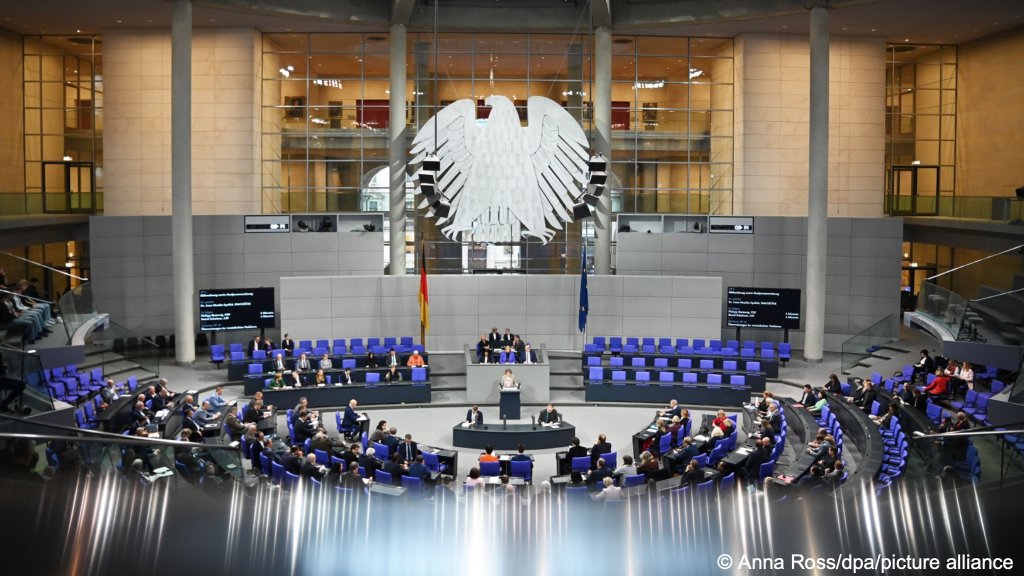
Those who can stay — and those who must go
The Free Liberals make a clear distinction throughout between immigration to Germany for employment and related purposes and those who come seeking protection.
The party says it wants to modernize all immigration procedures, stressing that "local authorities in particular are so overburdened by the continuing high influx into the German asylum system that integration is difficult to achieve."
"Swift procedures and clear decisions are needed in the area of migration. We want a new migration policy that is more controlled and orderly. Those who work here and live according to our values should have it easier. Those who want to immigrate to [abuse] our social security systems without the right to stay or who endanger our security will have a harder time."
Further in the paper, they also state the following:
"We want immigration into the labor market, not into the social security systems. And we want to live up to our humanitarian responsibility, but also align it with our real possibilities. Moreover, social acceptance of immigration can only be maintained through sustainable integration."
On the opposite end of the spectrum in this debate, the party also highlights that it wants "German citizenship to be granted at the end of successful integration," while also stressing that as part of the last government, "we have ensured that people can only be naturalized if they earn their own living. In doing so, we are sending out the signal that diligence and hard work pay off."
Read AlsoGermany's reformed citizenship law is coming into force. What does it mean for migrants?
No tolerance for intolerance
The issue of immigration is further elaborated on in a chapter titled, "Autonomy through all of life's events."
Here, the party highlights its zero-tolerance approach to foreign interference, saying that they will "defend the institutions of liberal democracy against attacks by extremists and against infiltration by authoritarian regimes."
"We will fight political and religious extremism," the paper says, and goes into more detail later on, focusing in particular on security threats posed by foreign-imported crime.
They repeatedly use phrases like "domestic safety," "intelligence services," "border controls" in the context of extremist violence and terrorism, hinting at the party's known zero-tolerance approach towards people who pose a risk to society.
There's also a reference made to fighting criminal "clans," which in Germany is often used to describe criminal groups of foreigners, especially those from countries in the Middle East.
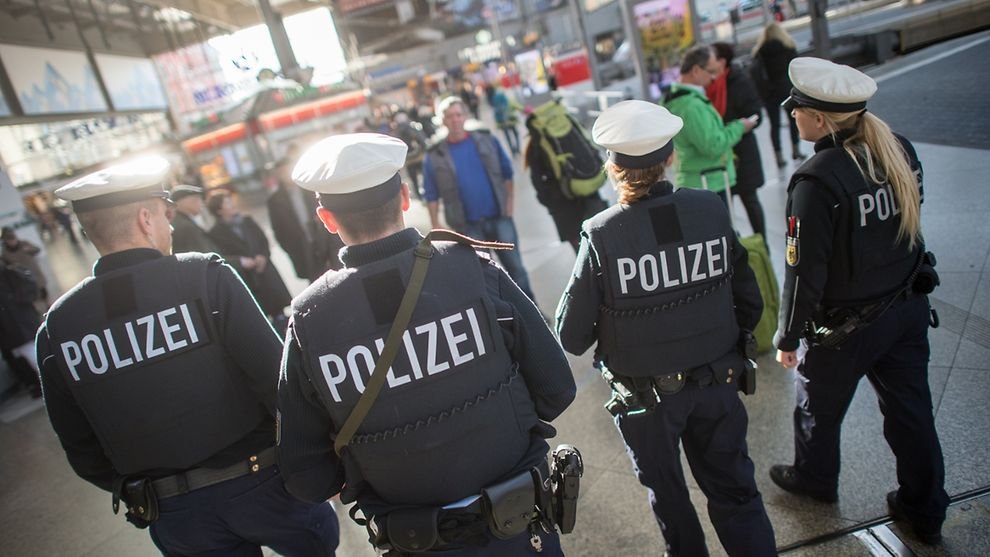
Like other parties, too, the Free Liberals say they want to combat terrorism by limiting access to weapons for people who might endanger the social order of the country, in particular by curbing the trade of illegal weapons. However, in the same breath, the party says it does not want to introduce more limits on overall gun laws.
In the context of migration, the party doubles down on sending dangerous people back to their home countries, and also stresses that those who cannot be deported (for example on account of a lack of bilateral agreements with countries of origin) should stop receiving any state support, financial or otherwise.
Read AlsoWithout immigration, Germany’s labor market would collapse within decades: study
The role of Islam in society
As part of their liberal approach to all things, the Free Liberals say they also support freedom of religion, and add that they would like to extend Germany's legal provisions on faith issues, which for decades have only benefitted the Lutheran and Catholic Churches, to other denominations and faith communities.
They stress, however, that this applies only to "religious communities that recognize the principle of equality and diversity of faith, fundamental rights and the self-determination of their members."

The party singles out Islam as a religion, which in some instances might have to pass additional tests in order for it to be treated with the same regard.
"We want to subject the Islamic associations to critical scrutiny. We must clarify which associations can be partners of the German state and which cannot. Associations that whitewash or trivialize political Islamism or do not condemn anti-Semitism cannot be partners in religious policy in this country," they stress.
They conclude: "The radicalization of Muslims in German society leads to social division, violence and terrorism. In particular, radicalization by Islamist influencers via the internet has increased significantly in recent years. In addition to the means of criminal law, all measures under immigration law must be taken here."
You can read the Free Liberal manifesto in German in full here. There are also synopses in several foreign languages, including English if you follow this link.
